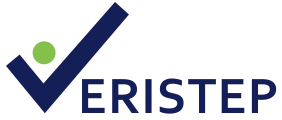In today’s fast-paced and interconnected business world, the potential for fraud is a growing concern for organizations of all sizes. Fraudulent activities not only result in financial losses but can also damage your business’s reputation, erode employee trust, and create legal complications. Corporate risk investigations play a critical role in mitigating these threats, helping businesses identify vulnerabilities and take preventive measures.
Understanding Corporate Risk Investigations
Corporate risk investigations involve comprehensive assessments to identify areas where your business may be susceptible to fraud, financial crime, or other forms of misconduct. These investigations delve into a variety of risk factors, such as internal processes, employee behavior, partnerships, financial records, and digital security systems. They also focus on identifying potential threats, analyzing them, and recommending steps to mitigate those risks.
The Role of Investigations in Fraud Prevention
Corporate fraud can take many forms, including embezzlement, insider trading, financial statement fraud, and cyber fraud. Here’s how corporate risk investigations protect your business from fraud:
Identifying Fraud Indicators Early:
Risk investigations are designed to detect early signs of fraudulent activities. Investigators use advanced tools, data analytics, and thorough audits to uncover discrepancies that may indicate fraud before it escalates.
Auditing Financial Records:
Financial irregularities are often the first sign of internal fraud. Corporate investigations review accounting records, transactions, and employee spending to identify red flags such as unauthorized transfers or inflated invoices.
Monitoring Employee Behavior:
Unethical employee actions, like conflicts of interest or collusion, can go unnoticed until it’s too late. Investigators monitor behavior, looking for patterns that could signal fraudulent intent.
Enhancing Cybersecurity:
In the digital age, fraud often occurs online. Corporate investigations assess your company’s cybersecurity infrastructure, ensuring that sensitive data is protected and that systems are safeguarded from cyber-attacks.
Real-World Examples of Fraud Prevention
Many companies have avoided large-scale fraud by conducting regular corporate risk investigations. In one case, a multinational corporation discovered an internal embezzlement scheme after investigators noticed inconsistencies in financial reporting. By acting quickly, the company prevented further losses and tightened its internal controls to prevent future fraud.
Taking Proactive Steps
Businesses must prioritize fraud prevention by regularly conducting corporate risk investigations. These investigations not only protect against fraud but also foster a culture of transparency and accountability within the organization. By addressing risks early on, your business can avoid financial loss and ensure long-term success.


